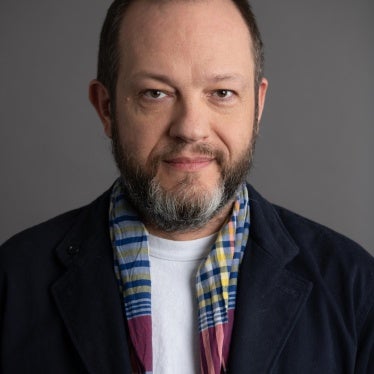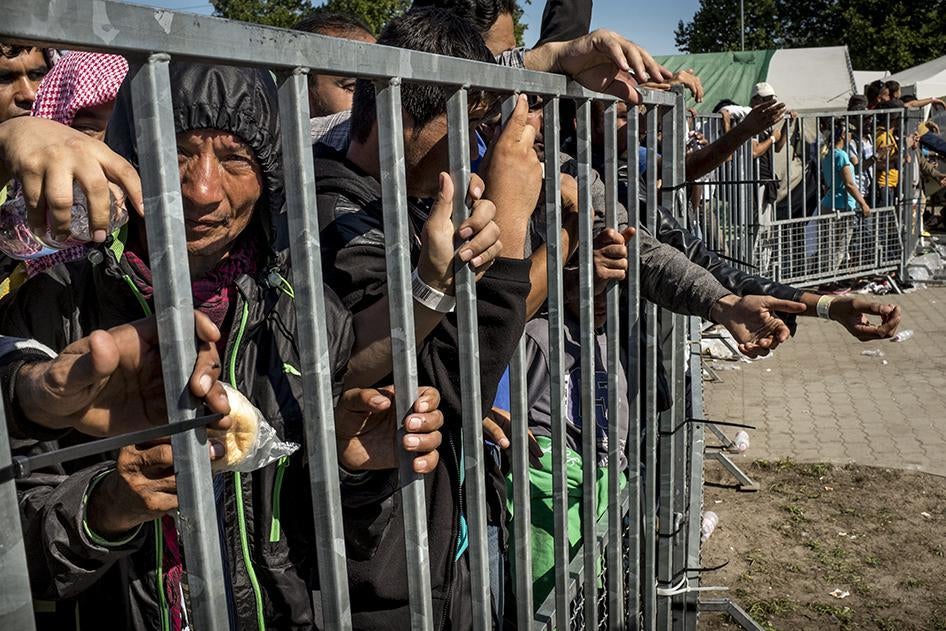With a few exceptions, the success of populist parties in the polls has yet to translate into control of the executive in EU states. But insurgent populist parties have made progress in provoking mainstream parties to ape their political agenda and normalise their message for fear of losing votes.
The result is that even where populists don’t win power through the ballot box, they gain it through shaping policy and the public debate.
Nowhere is this clearer than on migration. During recent meetings in Brussels, the fear of populism hung like a fog. One official told me that what the EU decides on migration can affect elections in all 28 of its states in explanation for the Union’s major retreat from its values over the past year.
In the wake of the Brexit vote, EU Council president Donald Tusk wrote to EU leaders effectively arguing that to preserve the union it had to set aside its values and ensure that “effective control of external borders comes first.”
This position can be expressed simply: keep people away from the EU at all costs even if they need protection as refugees, and make life unpleasant for those who do reach EU territory.
It’s a retreat that will be evident when EU leaders meet at a summit on December 15. Migration control will top the agenda. It will include a focus on the problematic deal with Turkey aimed at keeping asylum seekers and refugees from reaching EU territory and a discussion of migration cooperation deals with five African countries, all part of a major effort to shift responsibility away from EU states and onto others.
Human Rights Watch research shows the human cost of this agenda. Refugees and asylum seekers trapped in Greece in appalling circumstances, abused in Hungary, and blocked from entering Turkey from war-torn Syria. Experience from Ukraine and Libya shows that EU migration cooperation with transit countries that focuses on control and enforcement can deny refugees the protection they need and expose them to abuse.
Shifting responsibility for refugees and asylum seekers onto other countries and creating a harsh environment for those already here is not only inconsistent with human rights and refugee law, foundational EU values. It’s bad policy.
It offers no long-term solution to the challenges posed by migration. It may reduce the number of people reaching Europe’s shores for a while. But turning a blind eye to abuses in countries of origin and transit risks exacerbates the problems that cause people to flee. Outsourcing may avoid EU governments having to develop effective systems for sharing responsibility, but it leaves Europe without the tools to cope with the next mass influx.
With the vast majority of the world’s displaced people already being hosted by poor countries in the global south, EU governments need to share responsibility or watch as those countries follow its lead with closed borders in ways that could lead to humanitarian crisis for those in the most acute need. Kenya’s government has already pointed to European foot dragging on Syrian refugees to justify its own efforts to close the world’s largest refugee camp and force refugees back to Somalia.
Political leaders need to engage with public concerns around migration, integration, economic insecurity and the fear of loss of cultural identity. But they should do so in an honest and smart way. This means pointing to the opportunities while acknowledging the challenges, reminding people that values of human rights and equality are part of the European “cultural identity” some fear is being lost, and offering a positive vision consistent with shared values that are likely to deliver results.
That’s something that can be learned from the recent Austrian presidential elections, where the winner refused to follow the government’s pale embrace of his opponent’s xenophobic anti-refugee agenda. Instead he offered a positive agenda and won comfortably.
If Europe’s leaders are serious about defending our values and strengthening the protection of refugees and other victims of human rights abuse, they should follow the lead of Austria’s new president. Otherwise the populists will not need to win power to achieve their agenda – mainstream parties will deliver it for them.










